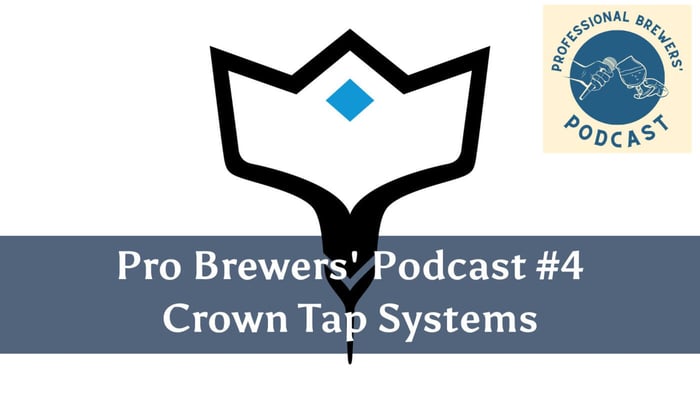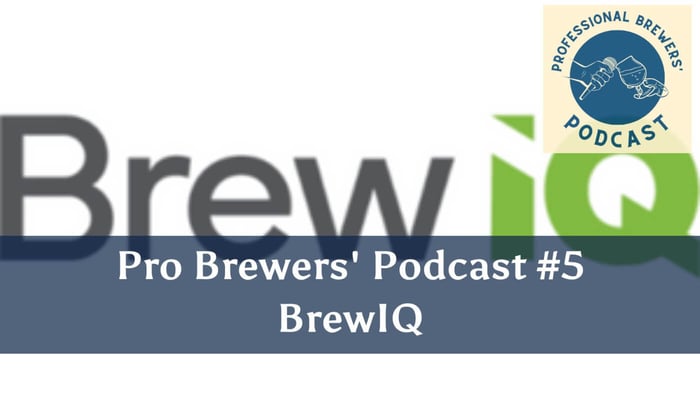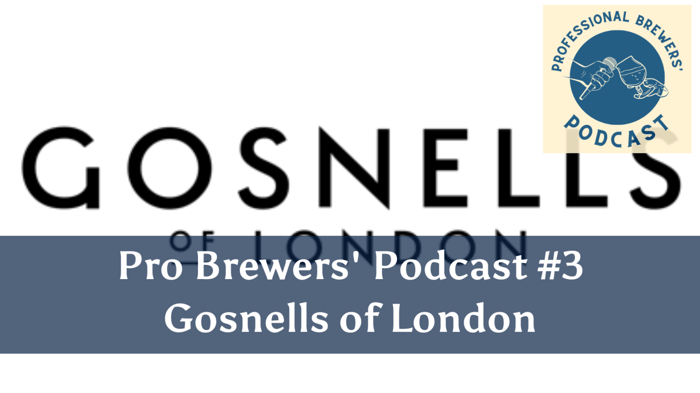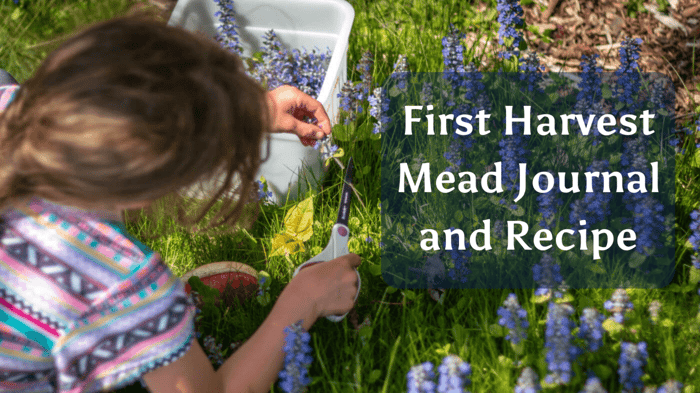On this week’s show, I talk to Dillon DiSalvo from Crown Tap Systems, a family-owned and operated distributing company covering Maryland and DC.
We talk about the process of starting a distributing company, what it’s like to break into a new market, how distributors decide which brands to work with, and much, much more.
From the Episode
Visit Crown Tap at https://www.crowntapsystems.com/
To get in touch with Dillon directly, e-mail him at dillon@crowntapsystems.com

About the Podcast
Welcome to the Professional Brewers Podcast where we interview brewers, brewery owners, and other folks in the industry to take a deep dive into what it takes to have a successful brewing operation.
This show is for brewers of all kinds: folks considering going pro, professional brewers, people who want to look behind the scenes of their favorite breweries, or merely the brewcurious.
Whether you’re hanging over a fifty-barrel mash tun while you listen to this or you’re just starting your professional brewing journey, we hope this show helps you become a better, more profitable, happier brewer.
New episodes every Wednesday!
Transcript
Welcome to the Professional Brewers Podcast hosted by Groennfell Meadery and me, Ricky the Meadmaker.
This show is for brewers of all kinds, anyone looking to get into brewing professionally, folks who want to peek behind the scenes at their favorite brewery, or merely the brew curious.
Whether you're an old hand in the industry or just starting your professional brewing journey, we hope this show helps you become a better, more profitable, happier brewer.
On this week's show, I talk to Dillon DiSalvo from Crown Tap Systems, a family-owned and operated distributing company covering Maryland and DC.
We talk about the process of starting a distributing company, what it's like to break into a new market, how distributors decide which brands to work with, and much, much more.
It's a great episode whether you already have a distributor, you're thinking about getting a distributor, or maybe you want to start your own distribution company.
So without further ado, let's get to the show.
Dillon DiSalvo [from Crown Tap Systems], welcome to the show.
Thank you for having me.
So you're a distributor, and you have a, would you refer to it as a small, midsize distribution outfit?
Small, small, yeah.
So give us a background. When did you start? How big are you? How many people are working there? What's your distribution region? Everything people might want to know.
Sure.
So my background is accounting. We worked with a lot of people in the alcohol industry on the back-end accounting side.
We started a distribution company back in 2015. We kind of liked the idea. It's funny because this is an industry we, my dad and I are kind of equal partners in this endeavor. It's an industry we've always had just kind of this back-of-house relationship with. We never really were in it.
And so of course we jump in, you know, head first and we started the process in Maryland around 2018 to get licensed. Took us about a year with all the rigmarole you have to go through. And then finally in March of 2019, we got our license.
We started just with liquor and wine, figured out a lot of stuff, hard lessons, the most fun types of lessons. But you learn them well.
So we kind of putzed around, really kind of geared up 2020 is our year. And we had a bunch of trade shows lined up and stuff and everything.
And then we got hit with COVID.
And so we were always small. It was me kind of doing it with my brother Thomas for a while. He would kind of focus on DC. I would do all of Maryland. We had people kind of come and go in various capacities. But for the most part, it was just us.
And yeah, 2020 came and craft went completely by the wayside, especially spirits and wine. Alcohol sales were up. Nothing else was in craft world. People were just running in to get their favorites out of the store and then no one couldn't do tastings anywhere, couldn't do anything.
So we actually got permission to do a cocktail club where we could put our spirits and cocktail kits and kind of work with stores to deliver our spirits to people directly. And so that kind of kept us afloat through 2020.
And then we kind of took a leap in 2021. We decided to add beer to our license to kind of expand because what we saw was this wasn't working. We needed to expand what we carry. And actually, you guys were the first beer product that we took on, honestly, because I saw an ad and I'm like, I don't think mead spoils like beer does. I learned a lot of hard lessons. I didn't want to learn hard lessons with beer spoilage right off the bat.
And so we had, I call it a famous meeting. I'll always remember that meeting, especially just getting on the phone with you and then you're like, so behind you is a movie poster of my favorite movie ever. And learning later, that's the only reason you kept the conversation going.
So yeah, and then the mead just kind of took off and of course, the laws about the delivery and stuff of alcohol went back into effect. So we had to stop the cocktail kit club. We got a few of the meads in some of the ones in early 21. But what ended up happening is we just completely kind of went back to the traditional route.
And yeah, it was just kind of me working at that time with Thomas's daughter was born and he kind of had to take a backseat a little bit. And then I was just kind of all over the state, just peddling a one-man show, finally got a little bit of help. Then October of 21, hired my first person, things were going well. And then that person left in early 22.
And so this fun little jockeying back and forth of hiring and rehiring. And I'm sure you dealt with a revolving door of employees. Just it was kind of an employee's market. They had, especially in our area, people had their pick of jobs and you had to be very competitive.
Finally, I got my crew, as you might say, the end of last year, early this year. And so right now it's a three-man team and we're having our best months. That's fantastic.
So yeah, we're on track to do something really, we're probably on track to double last year's profit. That's huge. And that's something being a smaller distributor. There are no none of the big players right now are talking about doubling their profit this year, next year, in the next decade, probably. So there's a ton of room to grow as a small distributor.
But people tend to think of the distribution game, especially in well-established states like in the mid-Atlantic and in New England, as a big boys' game. There are a few major players in a lot of those places. So as a smaller distributor, what do you think your advantages are in that space? If someone listening to this thinks they may want to go the distribution route. Obviously, a lot of people listening to the show want to be brewers or start a brewery.
But I worked on both sides of this myself. And there were definitely a lot of things I loved about getting out there peddling brands.
So we are kind of in a neat space because I'm sure some suppliers are going to be like, yeah, it's not neat for us. But roughly, we heard that in 2017, 2018, big distribution companies started cutting back on craft brands
And some of these even mid-sized that have pretty decent distribution, they suddenly see a standstill where these big distribution houses that have the Miller cores and Anheuser-Busch franchises, they're pulling back from their craft market and really downsizing, and people can't get their stuff to any of these big guys.
And then COVID kind of took out a lot of small guys. And so what we are fortunate enough to limp along through that.
And what we're trying to build is a distribution company that is focused on brand building and almost being the reps for our brands in the state. It's a little more legwork, a lot more knowledge of the product has to be done.
We do all our own tastings. We do events. We're there each step of the way with our brands, which is why our portfolio is kind of small. We are building it.
But when we bring on someone, it's very purposeful and making sure that nothing is really in direct competition.
So we just brought on Kindred Spirit Brewing, which is going to be fun to explain.
Kindred Spirit Brewing.
They're not spirits that brew.
Kind of like how people are confused when we say we're Crown Tap Systems.
I'm like, are you trying to sell me a tap system?
I'm like, no, maybe we'll change your name.
We're actually thinking about changing our name because of that big confusion.
So stay tuned, but we'll see.
The logo, I think we're going to try to keep the logo and do something within that kind of framework.
But yeah, it's funny how much complaints I get from Natalie and Christine.
They're like, people always get confused.
I'm like, does it really take that much out of your day to explain it?
But what I'm more proud of is the confusion around the fact that people think we are from the breweries because that's how much emphasis we put on repping our brands.
Natalie the other day was somewhere and just telling me she had to explain like five times to this bar manager that she was the one he bought from.
Yeah.
And it's like, so who's your distributor?
And it's like, no, I'm the distributor.
It's like, okay.
But like, yeah, give me the name of your distributor.
I was like, do you understand?
Me, me.
So it's just, I'll have to also make sure to say my Italian gestures.
I can't say don't translate to audio.
Okay.
But that's one thing that we really pride ourselves on.
And we were actually on Friday, our Pennsylvania brewery, Aldous Brewing, they took us out to lunch and I knew it was something good.
Buy someone lunch, they slap them across the face.
At least I don't.
Maybe some people do, but Natalie was all worried.
And Natalie's kind of become my second in command here.
Thomas has had a second kid and he's still involved with events and stuff.
But Natalie's become kind of my, to use another kind of, to use a mob term, she's my underboss, but she's, we're going to the sludge.
She's worried about it.
I'm like, why are you worried?
We go there and they're like, so you're about the 10th of the size of our distributors in Pennsylvania and you're doing a third of the sales that they are.
And I was like, that's good to know.
And so they were like, we decided we need to put resources into you.
Yes, and that's kind of what, we're a lean machine.
We don't have a lot of resources to, I'm not going to buy a billboard for anyone, but we are experts at the hand sell, at the tasting, at the event, at the tap takeover.
What's also neat is I get to, I have a pretty diverse palette and I can tell things that are good in many different categories.
Like I don't have something that I hate and like can't stand.
That's like a major, like I'm not going to say, oh, I don't like sours.
I'm not going to take a sour.
I've learned to like sours, appreciate what a good sour is.
And therefore, we're able to build our portfolio accordingly.
But what's nice is because of that, I'm able to build a portfolio around things that I like.
I will say having worked again with the largest distributors in a couple of states, there used to be this mentality, certainly 10, 15 years ago, that you go with as a small operation, the largest distributor willing to take you.
And I can say that some of our smaller outfits, especially during COVID and in the last few years, are outselling some of the larger operations, simply because it seems like everything is a hand sell these days if it doesn't have a national-level marketing budget behind it.
So that's really a changing space that we've watched in just a decade and a half.
Yeah. Yeah.
And obviously, I don't have that decade longevity. I don't have that hindsight, but I do see that from talking to people, there is this appreciation for what we're doing.
And as far as where we want to end up, obviously, I want to build the company, but I don't want to lose.
I would take more pride in building a company with a reputation of having an awesome portfolio. Like, Crown Tap is always going to bring me top.
I want craft brands to be lining up to get a meeting with us because they know if they get in with us, they've reached like a tier of quality.
And that's what I prefer.
And the growth alongside these businesses.
I do like people that are growth-oriented just because we are, but at the same time, it's like, I have no desire to ever get a big franchise.
I mean, yeah, the money might be interesting, but I don't ever want a big franchise because it's not what I...
And listen, like I said, I have a big palette.
I don't snub any of the national brands.
They're my baseball beers, but it's just not what I'm interested...
Something about being a part of the story, but something about bringing a brand to recognition and a market.
And that's why I really took a lot of pride in what we did with Groennfell because anyone in the industry knows Groennfell now down here.
And so a lot of what you're looking for, I think you've touched on, cool off-the-wall things that are consistent.
What do you think a brewer should look for or a new brewery operation when they're thinking of getting maybe their first distributor or expand into a new state?
Whether that means that they should be looking for someone like you or maybe someone with grocery store reach?
What kind of questions do you think they should be asking?
Yeah.
So, I mean, every state's different.
So in Maryland, we're kind of weird because we don't have...
And this is another reason why we kind of fit in nicely.
And this is why Kindred was cool with coming on with us.
One of the reasons is because Maryland, it's one name, one license. There are no chains with anything.
So the big corporate buddy-buddy connections you don't need in Maryland, it's all one-on-one connections with each individual location.
They do kind of get a little wishy-washy with the rules when it comes to like Wegmans, Harris Teeters.
They're kind of separate in name only.
Wegmans is the biggest offender.
I don't care. I'll say it. Wegmans is a big offender.
Like I shouldn't have to email someone at Wegmans to get them one of their stores or a store next to Wegmans.
It's like clearly this is controlled by Wegmans.
Harris Teeter is very separate.
The people in the store, you go to each individual store, there's actually a manager who in the store making decisions.
So I appreciate that from Harris.
So we've had luck with Harris Teeters stores or stores adjacent to Harris Teeters, I should say.
Yeah. Let's be technically correct here.
Yeah.
Except for Wegmans.
So we do have that advantage in our state because we don't need that huge connection.
The biggest corporate thing we deal with is Total Wine and that's two stores.
One's in David Trone's name, one's in his brother's name.
I'm about 90% sure of that.
But that's why they want to retain control because if they hand that license name off to someone else, that's a lot of control to hand to someone else, not the family.
So they try to get another one in Montgomery County.
The county shot it down.
But there's a regional buyer there, I have a good relationship with them.
So that's the other cool thing.
And a lot of people like working with us because we're smaller, they text us, hey, we need XYZ.
We go in, we're flexible on...
People like that they're only...
They either talk to me directly or they're one person removed from me to make a decision on, oh, this beer's spoiled.
Can you take it back? Can you give us credit?
And that's the other thing is I don't know exactly what other distribution companies' practices are with certain things.
But we do regard it as a partnership between us and the supplier.
We're here to help each other succeed.
But at the same time, I do feel like a brand rep for them, so it's like I do not... Nothing that tastes off and it's a hard life, but I have to taste things periodically.
Nothing that tastes off goes out of the warehouse.
There are some distributors who have no qualms over selling three-year-old beer.
So as I mentioned before, most of the people listening are probably in the brewing industry on my side of things or thinking of entering the industry.
If someone wants to get into the larger industry, you obviously got in on the distribution side from the get-go.
Why might someone want to consider opening a distributorship?
Because in a lot of our episodes, of course, we talk about all the things that go wrong in a brew house and all the stress that goes with it.
You've covered a lot of...
Your difficulties are similar to ours.
But why might someone want to consider going through the year-and-a-half licensure process and all that nonsense you went through?
I have never felt like I was working.
And I was.
And it's just like the stories you get to be a part of every single place that every one of our suppliers, we go and visit.
We know we get to know everyone there.
I do their podcast.
But it's just a neat way to, A, you get the satisfaction of bringing someone to market, which is deeply sad.
Selling is easier than making.
If the stuff's good, selling is easier than making it.
And yeah, it's more rewarding than I could have imagined just because of the amount of people I've met, I guess.
You met me in high school, you would have been like, this guy would probably want to live on a deserted island when he gets older.
But when I first started distribution way, way, way back then, I would have such anxiety about going and talking to anyone.
And it brought me out of my shell.
I got to meet a lot of different people.
And that's why a lot of people become reps.
There's this one store, it's like a happy hour.
Every Thursday you get there at two o'clock and the reps will just end their day there because they know they're about to drink like five pints.
I've never done that, but I may have a few sips.
But there's a lot of work to be done.
But at the same time, it's incredibly rewarding, not as much maybe as making something that people enjoy.
But if that's not your inclination, if you're not a brewer or good at brewing or distilling or whatever, what have you, but you're passionate about the industry, and you don't want to be in service.
You don't want to be on the retail side of things.
There's just a lot of opportunities to A, see how a bunch of people operate.
And then, like I said, just make those relationships.
And a lot of times I've found myself being a bridge between different companies like, oh, you want to do collaboration.
You want to, oh, these people are doing X. They're tap room.
They need a beer.
Connect you guys.
So it's rewarding that way.
It's hard.
It's small business woes, lots of barriers to entry.
The big boys don't make it easy either by lobbying certain rules in place or abusing rules and making lawmakers create laws that are onerous to smaller people.
Lots of reports need to be filed.
Yeah, if I had to pick a main reason is just being a part of having your hands in so many different stories and that sense of being an integral part.
And if you do well, people like you.
And everyone wants to be liked, right?
So if someone was thinking about it, that would be kind of, you know, and like I said, you don't even have to be necessarily a people person.
You can make a lot of money doing it.
The plan is to make decent money doing it.
I don't plan to make decent money at the get-go unless you have a crap ton of money to put into resources in the front end.
But it's definitely it's been one of the most frustrating and rewarding things I've done in the last, what year is this?
I guess we're on four years now, going on four years.
So, yeah.
Well, I think that's perfect.
Dillon, thank you so much for taking time out of your day to chat with me.
And if people want to get in touch with you and have any interest in expanding into Maryland, what would be the best way to get in touch with you?
Just email me directly.
Dillon spelled the Irish way D-I-L-L-O-N.
Do not put a second I in there or I will not respond because it won't get through at crowntapsystems.com.
That's dillon@crowntapsystems.com
Great.
I'll drop that in the show notes as well.
Thank you so much.
Awesome.
Thanks for having me.
My guest today was Dillon DiSalvo from Crown Tap Systems.
If you enjoyed this episode, please head over to professionalbrewers.com for more amazing content to help you on your professional brewing journey.
And for exclusive content as well as the opportunity to ask questions of upcoming guests, please consider supporting us at patreon.com/professionalbrewerspodcast.
Your support makes this show possible.
Thanks for listening.
Cheers.




